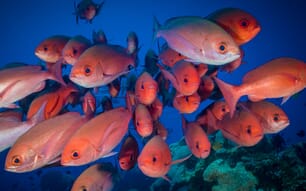Major improvements can be made by establishing new and better selective breeding programmes. The European research project FISHBOOST will advance European aquaculture to the next level for six aquaculture species.
FISHBOOST started this week at the host institute Nofima - the Norwegian Institute of Food, Fisheries and Aquaculture Research, with research, industry and NGO partners from nine European countries.
Unaware of the benefits?
The meeting was opened by Professor Trygve Gjedrem from Nofima, a selective breeding pioneer who was instrumental in developing the first family based breeding programme in aquaculture for Atlantic salmon. He pointed out that in 2010 only 10 per cent of world aquaculture production was based on genetically improved stock from family based breeding programmes. “I think this is a shame”, he said.
The project will address the cost benefits of implementing selective breeding in aquaculture production.
“We believe we will find some answers to what it takes to increase the 10 per cent, and guide aquaculture producers to implement selective breeding in their production,” said Anna Sonesson from Nofima, coordinator of the project.
A mixture of low and high-tech approaches will be developed, including aspects of social science, to move the breeding programmes of six fin fish species to the next level. This step-change advance to the next level means facilitating balanced and sustainable breeding programmes covering a wide range of traits, breeding tools and technologies. The six species are Atlantic salmon, common carp, European sea bass, gilthead sea bream, rainbow trout and turbot.
About the project
This five year comprehensive research project is funded by the European Commission through the 7th research framework programme. As many as 14 well-recognized participants within research and technology development in aquaculture breeding will collaborate with seven small and medium-sized enterprises, four large industry partners and one non-governmental organisation throughout Europe.
Please find more information at fishboost.eu



